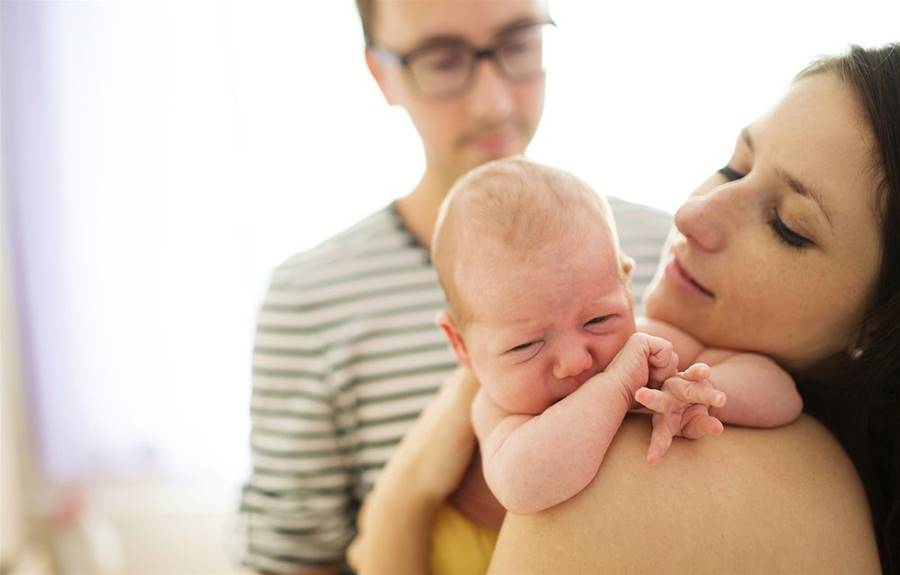


Emma Stone was an easy baby—for about 22 hours a day. "But late every afternoon, it was like she was possessed by demons—I couldn't get her to stop crying," says her mom, Suzanne, of Exeter, New Hampshire. "Sometimes it was so bad that my husband would come home from work to find both Emma and me wailing our heads off."
No recent scientific study out there proves that babies are especially fussy between 4 and 6 p.m. But parents and pediatricians use vivid language to describe this period, such as "the witching hours," "the arsenic hours," or in Emma's case, "sundowners"—because Emma got agitated promptly at sunset.
"I hear about it constantly," says advisor Ph.D., associate director of the sleep disorders clinic at the Children's Hospital, in Philadelphia. "It's a difficult stretch of time for almost every family." Learn more about why your baby might be extra fussy in the late afternoon and how you can cope.
Why are these hours so hard on —especially during their first three months? "Just like everyone else, babies get frazzled by the end of the day," explains pediatrician Harvey Karp, M.D., creator of the DVD and book, . In addition, it's the time of day when your child is least able to relax.
Research shows that a baby's body temperature usually peaks in the late afternoon, leading to maximum wakefulness. So your little one is exhausted—yet unable to unwind.
Your baby's immature nervous system doesn't help matters, either. "In the first three months of life, her brain is unable to modulate her behavior—such as making a quick transition from feeling fussy to a calmer state of mind," says Norbert Herschkowitz, M.D., coauthor of . Lastly, your newborn's body produces very little melatonin—the chemical substance that helps establish our sleep-wake cycle. This means she can't readily differentiate between daytime and night, or sleep for more than a few hours at a stretch.
By the end of the day, your baby is likely to be worn-out.
Around the time your baby reaches 4 months, his tendency toward sunset meltdowns greatly diminishes. His body starts to produce more melatonin, and his brain matures to the point that he can easily shift his attention from one thing to another. "This means babies are better at keeping themselves busy and pulling out of rough spells faster," Dr. Herschkowitz explains.
But while the period between , don't relax just yet: Your baby will confront new developmental challenges at 6 or 7 months that can cause him afternoon angst once again.
"At this stage, babies are highly curious," Dr. Karp says. "They are so excited by all the new things they can do that they often resist sleep and get overtired and cranky."
Even if your baby sails through this period, the 10-month mark—when he's learning to get around by or teetering on two legs—can be a difficult time. Why? Because mobile babies are tired babies. "Going from here to there from dawn to dusk is exhausting," Dr. Karp explains. This adds to their irritability in the late afternoons, when their bodies are ready to conk out but their zest for exploring is still in overdrive.
Simple Soothers
These techniques can help your baby be less anxious—and less likely to shed tears—at the end of the day.
Try swaddling. Until about 4 months of age, babies are often easier to calm if they're wrapped comfortably in a blanket. That's because it mimics the sensation of being cocooned in the womb. And when your baby's movements are restricted, she's less likely to flail about and accidentally hit herself—which can cause a major crying jag.
Adjust your schedule. If your baby is consistently fussy by 4 p.m., gradually alter his nap schedule so that he wakes later in the afternoon, or institute an additional late-afternoon nap.
Your baby may also be fussy because he's hungry. Try him just before your own dinner. Or, if he's old enough to eat , give him a small snack.
Get him in the zone. Don't discount the calming power of movement and white noise on an infant's jangled nerves. Help her chill out by playing a classical-music tape, putting her in a baby swing, setting her baby seat next to a running clothes dryer, vacuuming the carpet around her crib or play yard, or taking her for a ride in the car.
Leave the house. Your palms may sweat at the idea of venturing into public with a cranky baby, but new sights and sounds—in addition to the calming motion of traveling in a
or a front carrier—may help distract your baby out of his foul mood. And it might be just the thing to lift your spirits too.

